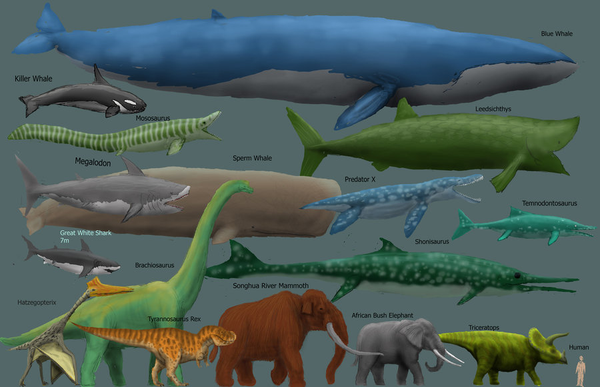In humans and other multicellular organisms, the rate typically ranges from about 1 per 100,000 to 1 per 1,000,000 gametes. There is, however, considerable variation from gene to gene as well as from organism to organism.
- At what rate does evolution occur?
- What is evolution rate?
- Does evolution occur at a variable rate?
- What increases rate of evolution?
- What are the two rates of evolution?
- How do you calculate evolution rate?
- How do you calculate evolution?
- Can evolution occur quickly?
- Do all species evolve at the same rate?
- Why does mutation rate variation occur?
- Is evolution slow or fast?
- What needs to happen for evolution to occur?
- Is the rate of evolution constant?
- How does mutation rate affect evolution?
- Which best describes the rate of evolutionary change?
- What are two different scientific ideas about the rate at which species change?
- What factors influence the rate of evolutionary change in a species quizlet?
At what rate does evolution occur?
Across a broad range of species, the research found that for a major change to persist and for changes to accumulate, it took about one million years. The researchers wrote that this occurred repeatedly in a "remarkably consistent pattern."
What is evolution rate?
The rate of evolution is a measurement of the change in an evolutionary lineage over time. ... The rate of evolution is measured in 'darwins'. Haldane (pictured opposite) defined a 'darwin' as a unit to measure evolutionary rates; one darwin is a change in the character by a factor of e in one million years.
Does evolution occur at a variable rate?
Population genetic theory shows that the expected evolutionary rate of genetic change for neutral mutations depends only on the underlying rate at which these mutations occur, and not on population size or natural selection. ... Rates of phenotypic evolution are even more complex and variable.
What increases rate of evolution?
Evolution is a consequence of the interaction of four factors: (1) the potential for a species to increase in number, (2) the genetic variation of individuals in a species due to mutation and sexual reproduction, (3) competition for an environment's limited supply of the resources that individuals need in order to ...
What are the two rates of evolution?
The two generally accepted ideas for rates of evolution are called gradualism and punctuated equilibrium.
How do you calculate evolution rate?
Rates of evolution are generally calculated in terms of proportional change, ln (x2 / x1) = ln x2 − ln x1, divided by elapsed time.
How do you calculate evolution?
The Evolution Index is basically the growth rate of a product relative to the growth rate of the market. For example, the EI for the product Calcigard should be (20.52/31.66)*100 = 64.81. The EI for the market is always 100 i.e. (31.66/31.66)*100.
Can evolution occur quickly?
CORRECTION: Evolution occurs slowly and gradually, but it can also occur rapidly. We have many examples of slow and steady evolution — for example, the gradual evolution of whales from their land-dwelling, mammalian ancestors, as documented in the fossil record.
Do all species evolve at the same rate?
All species evolve at about the same rate. Different species evolve at different rates and those rates change through time. Almost all species that have come into existence are still alive today.
Why does mutation rate variation occur?
Mutation rate variation among individuals or species could arise as a result of differences in mutagen exposure or the ability to neutralize or block those mutagens.
Is evolution slow or fast?
Evolution is usually thought to be a very slow process, something that happens over many generations, thanks to adaptive mutations. But environmental change due to things like climate change, habitat destruction, pollution, etc. is happening very fast.
What needs to happen for evolution to occur?
A condition necessary for evolution to occur is variation in fitness of organisms according to the state they have for a heritable character. Individuals in the population with some characters must be more likely to reproduce, more fit. Organisms in a population vary in reproductive success.
Is the rate of evolution constant?
The molecular evolutionary rate is then expected to be constant, assuming that mutation rates are the same across the evolutionary lineages of a given protein (Figure 1). ... Thus, the molecular evolutionary rate is expected to be constant (bold line). Each dot represents divergent evolutionary lineages of a given protein.
How does mutation rate affect evolution?
Mutation is fundamental to evolution. Without it, evolution cannot occur, because mutation provides the genetic variation necessary for selection and genetic drift. Each new mutation in an individual can increase its fitness, decrease its fitness, or have no effect on its fitness.
Which best describes the rate of evolutionary change?
Which best describes the general rate of evolution? IT takes such a long time for populations to evolve because the changes occur slowly over many generations. It does not always happen at this rate but as quickly as 4,000 years or as slow as 40 million years.
What are two different scientific ideas about the rate at which species change?
The two main ideas explaining evolution are gradualism and punctuated equilibrium. These two theories have yet to be proven true, but they do strongly support the fact that the rate of evolution is not constant. Gradualism states that evolutionary change happens continuously and gradually.
What factors influence the rate of evolutionary change in a species quizlet?
The factors are rate of environmental change, genetic variation, population size, and generation time.
 Animalscaretips
Animalscaretips



